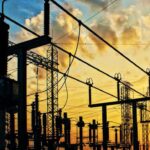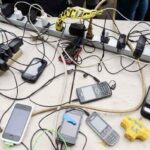The Nigerian Electricity Regulatory Commission (NERC) has implemented an approximately 250 per cent increase in tariff for customers who they claim enjoy over 20 hours of light daily. Even as the tariff is increased, Nigerians complain about negligible power supply and their reliance on expensive solar systems or fuel-powered generators.
Nigeria supposedly has the capacity to generate 22,000 megawatts (MW) of electricity, but routinely generates 4,594MW or less. This is approximately 1/10 of the electricity generated in South Africa which population of 59.89 million is about one-quarter of Nigeria’s estimated 200 million.
Despite this shortfall, it’s well-known in the industry that increases in power tariff will not improve power supply in the foreseeable future. It will simply increase hardship because even the most elementary understanding of economics teaches us that increases in fuel, electricity, labour costs or taxes will simply represent increased costs of production which will be passed on to the customer.
Critics are at a loss to comprehend why the federal and state governments appear preoccupied with implementing policies that are detrimental to public welfare. The answer lies in being enamoured with “technocrats” who are simply experts in a particular field; trained to think only of what is the best for their area of specialisation and not to consider the wider socio-economic impacts of their decision.
Neither NERC officials nor the Minister of Power, Adebayo Adelabu, can be blamed on their mindsets because electricity subsidy surpassed N1.3trn, whereas only N450bn was set aside in the 2024 budget.
The minister said the cost of subsidy was “crippling” and that the government was shouldering 67 per cent of power generation, transmission and distribution expenses, costing the nation 10 per cent of the budget.
He went further to accuse law-abiding citizens of being responsible for epileptic power supply, saying quite illogically that Nigerians did not have the culture of consumption management because of the “cheapness” of the tariffs we paid. This is arrant nonsense. The truth is that the electricity tariff in South Africa is N147 per kWh, where the minimum wage is N312,000. Tariff in Calgary, Canada, is N122 per kWh, while their minimum wage is N2.3m, while the tariff in Nigeria is N225 per kWh and the minimum wage is N30,000.
The minister deplorably complained of people leaving their air-conditioners and freezers on; as if it was some sort of crime. Evidently, he is unaware of the true state of affairs in the country, where the majority of citizens live below the poverty line and only dream of possessing air-conditioners or freezers. Instead of discussing how he intends to ensure that power supply increases, Adelabu argued that tariff increase was necessary in order to free up funds for investment in areas like education and healthcare.
Government spokespersons are labouring to convince the public that removal of electricity subsidy will allow for more sustainable investment projects by alleviating the financial burden on government, but this argument is fallacious. The Nigerian experience is that no matter how much money accrues to the government, the circumstances of the population get progressively worse while leaders bequeath more debts than they meet. No government appears to be the slightest bit concerned about using money to actually try to pay off debts.
It’s also fallacious elementary textbook economics to assume that higher tariffs will attract private investments into the power sector. The reality is that Nigeria isn’t an investor-friendly nation. Investors are struggling to recoup their initial investments, and the higher tariffs will undeniably be dedicated to that purpose. Claims that higher tariffs will encourage energy conservation are also fallacious. The nation’s problem is insufficient power supply. It is illogical to assume that the paltry 5,000MW being generated needs to be “conserved” in any manner. The truth is that increased tariffs will disproportionately affect the low-income earners, increase the numbers falling below the poverty line and reduce the quality of life for the majority of Nigerians, even as there is widespread discontent over the ever-increasing cost of living.
The Nigeria Labour Congress (NLC) has described the tariff increase as “unjust and unpopular” and accused the government of serially bowing to the dictates of the World Bank and IMF which have never been beneficial to the nation simply so that they can be granted more loans to further increase national debt.
The Manufacturers Association of Nigeria (MAN) has also expressed grave concerns, correctly pointing out the contradiction between the government’s claim of wanting to attract foreign investment in the industry, and their action of knowingly increasing production costs. MAN believes that increases in electricity tariffs will cripple businesses and increase rampant inflation.
Despite all objections, the federal government has dug in its heels and refuses to back down from the controversial increase. The removal of subsidies and tariff increases will normally provoke public backlash in any nation.
However, with the pocketing of the National Assembly, death of political opposition in Nigerian democracy and the loss of respect for a politicised NLC, the government is not facing any stiff opposition which should overly concern it.
Despite this, the nation faces the challenges of meeting the need for affordable electricity and taking into consideration naira devaluation and galloping inflation, making the argument against subsidising power making little sense.
Indeed, it makes far more sense for the government to take a holistic view of governance and subsidise areas of the economy which benefit all Nigerians rather than myopically preferring to hand out politically-driven palliatives.

 Join Daily Trust WhatsApp Community For Quick Access To News and Happenings Around You.
Join Daily Trust WhatsApp Community For Quick Access To News and Happenings Around You.


